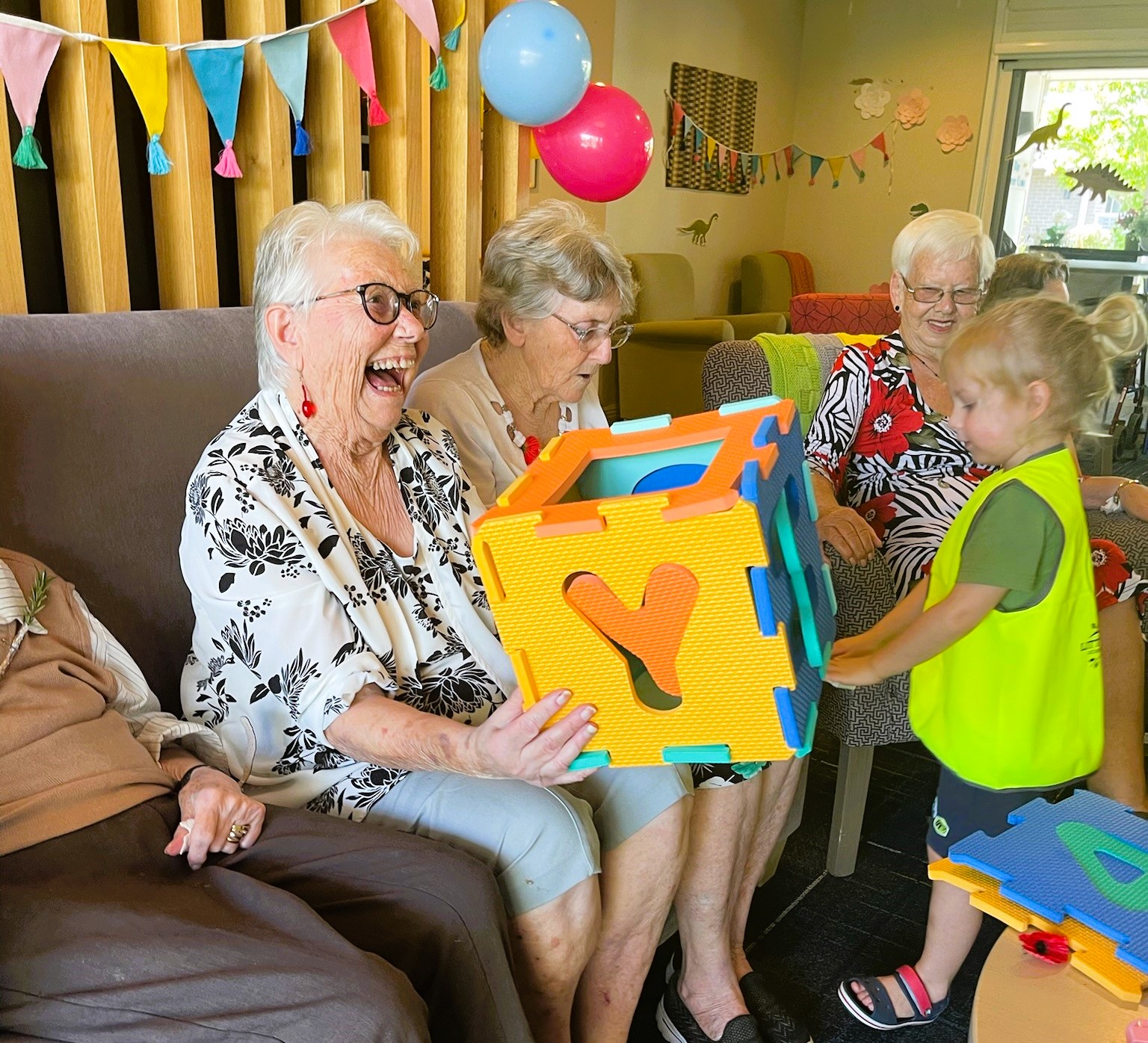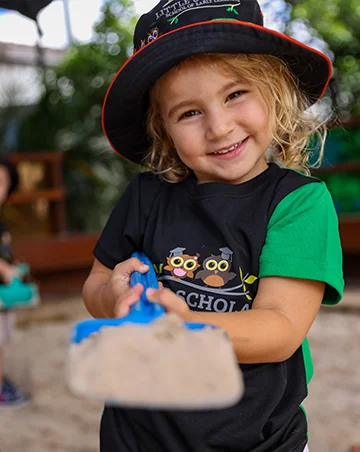Our Parkwood little scholars are not only a part of our newest intergenerational program, they’re helping contribute to important research that looks at how intergenerational bonds support children’s emotional wellbeing as well as that of older people who often experience feelings of loneliness in their later years. This latest study by Griffith University will run over 24 weeks in three eight-week pairings with eight children and eight grandfriends.
Researchers at Griffith University, led by Professors Gaery Barbery and Anneke Fitzgerald, are evaluating the intergenerational program, proudly hosted by Bupa Agedcare Group Limited at Bupa Runaway Bay.
“The program is all about making connections,” according to Professor Barbery, project lead for Griffith University.
The project will measure loneliness, resilience and general wellbeing of the aged care residents using the De Jong Scale of Loneliness, he says.
Isolation and feelings of loneliness are a serious threat for older people, because they’re more likely to live alone, lose family members and friends, suffer from chronic illness and hearing loss. Statistically, one in four older (over 65) Australians live alone. Of those who live alone, according to a 2015 Australian Bureau of Statistics survey, about 12 per cent didn’t receive visitors in a three-month period, and older men were reported to be less likely to have been visited, at 17 per cent.
From the viewpoint of the children, their educators will mark and monitor the project feedback and how it measures against set parameters using the Leuven scale.
“It measures children’s wellbeing and involvement based on observations from staff. There’s also a reflection manual for staff (educators) to offer their perspective of the program, along with a program evaluation survey,” according to Professor Barbery.
Bupa residents getting involved
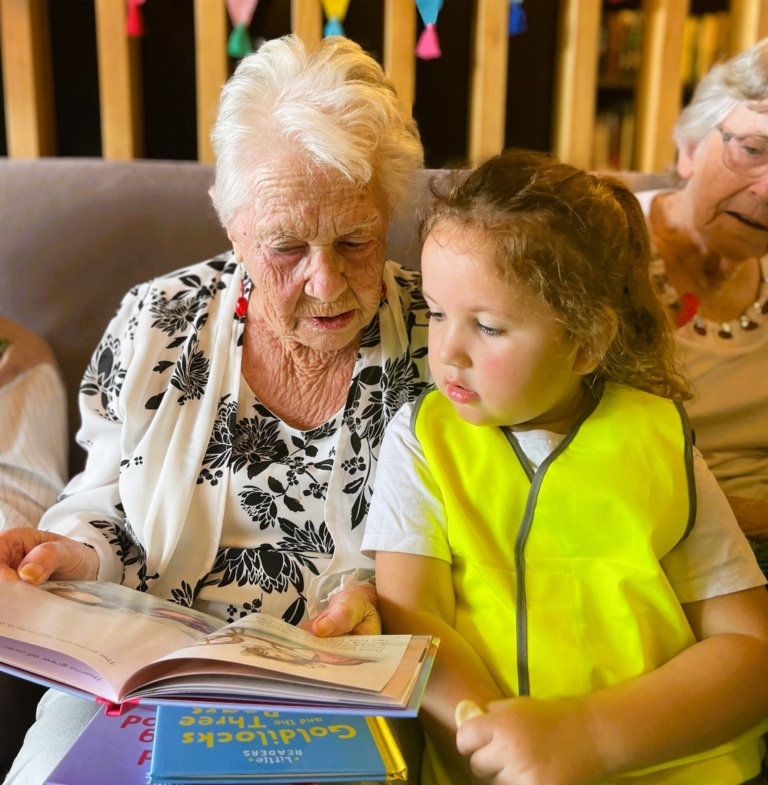
The Bupa residents were delighted to join the research project, all having different reasons for wanting to be a part of the program.
“To see the little ones again, because my grandchildren are all grown up, and all littler ones who’ve been born are overseas, so it’s nice to see little people again,” says Lorette.
“I like little children, and I’ve got a baby great-granddaughter but she’s in New Zealand. So this is a way to spend time with small children. They’re so cute, they’re gorgeous!” Pam says.
Being a half a world away from her family has been hard for Beverley.
“I was a teacher in preschool. I just love kids,” she says. “I have two grandchildren in England, I miss having my family nearby, they come but it’s so far away and a lot of money.”
For Joan, who turned 95 the day before the research project kicked off, she hadn’t considered how much she’d enjoy the visits.
“To start with, it was just an activity, but I found it was so interesting watching these children.”
And Joan says she’s impressed by the maturity of the children, even though they’re only four and five years old.
“They’re much older than we were mentally. Probably because as a society we do more adult things with them. They do seem very advanced to me. It’s a totally different ballgame than when I was a child,” Joan says with a laugh.
Our little scholars' feedback
Of course, we had to ask our little scholars what their takeaway of the program has been so far, and their answers were predictably unpredictable.
Community involvement
This project is enthusiastically supported and funded by Bendigo Paradise Point Community Bank.
“The Bendigo Paradise Point Community Bank is a registered social enterprise supporting the Gold Coast Community,” says William Matthews, who is proud to be on the Board of Bendigo Bank Paradise Point, as well as principal and director of client operations for Sovereign Family Offices.
Will says he heard Professor Fitzgerald speak at the Australian Institute for Intergenerational Practice (AIIP) meetings that he regularly attends, and was inspired to see how Bendigo could help.
“As a social enterprise we reflect the values of our community, customers and staff. We see our support of Intergenerational Practice in the community as an essential component to strengthening our community by breaking down the barriers in how our most venerable people in society are cared for. We are extremely grateful for Little Scholars, BUPA and Griffith University for championing this project and supporting a future that includes people from every stage of life.”
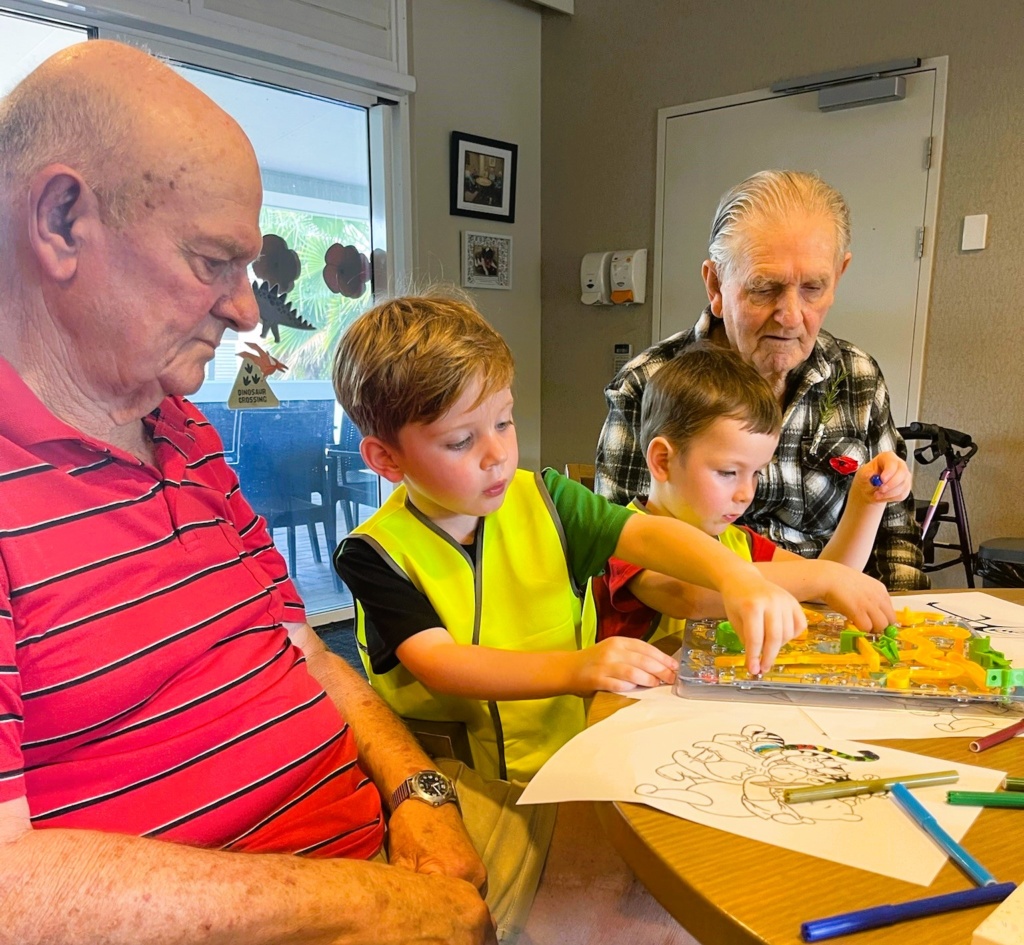
How intergenerational programs benefit participants
Mandy Kaur, general manager of Bupa Runaway Bay, says once her team heard about the project, they were very quick to jump to be a part of it.
“We are all excited to continue this project,” Mandy says. “I believe these visits can foster a sense of joy, connection, and purpose for both the children and the elderly residents.”
The benefits of intergenerational programs in aged care are numerous, according to Mandy.
“Combating loneliness, fostering empathy, promoting social engagement, and enhancing cognitive function for older adults.
“They also provide younger generations with valuable life lessons, respect for elders, improved social skills, increased empathy and understanding towards older adults, enhanced emotional development, and opportunities for learning and cognitive stimulation.”
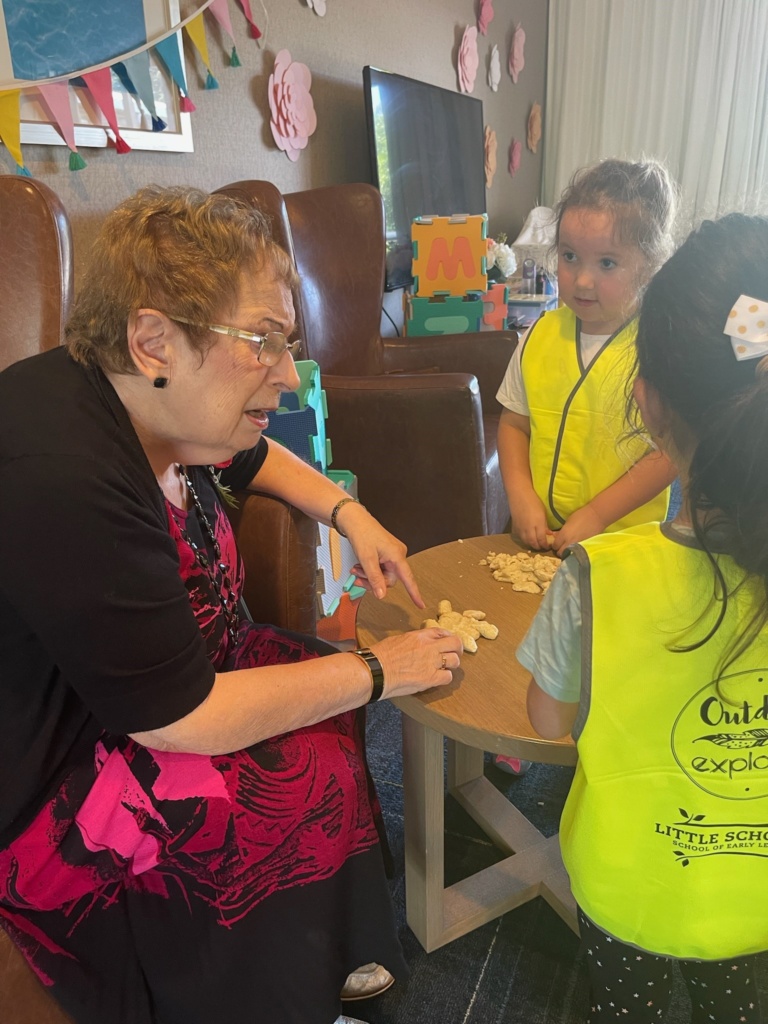
“The children are loving the visits so far,” according to Amy, campus manager for Little Scholars Parkwood. “They have developed some beautiful relationships with some of the residents and regularly discuss throughout the week their experiences with them.
“After week two, the children knew their grandfriends by name and were buzzing with excitement to see them again, which I think shows just how beautiful incorporating an intergenerational program can be!”
Professor Fitzgerald says programs like intergenerational ones further support the old proverb that it takes a village to raise a child.
“This research has the potential to make a huge impact on society, reconnecting the young and old,” she says.
“It is not just their eyes that lit up, but also their brain. There is nothing more satisfying than seeing older adults and young people connect for mutual benefit. So exciting to see how hearts are filled with joy.”
“I’m proud Little Scholars has the opportunity to assist in important research that looks at the benefits to both the young and the young-at-heart. Our little scholars are in the most important years of their life when it comes to brain development, and the lessons they learn from their grandfriends they can carry with them their entire lives,” says Jae Fraser, founder of Little Scholars.
Intergenerational relationships is something Jae is passionate about, and it’s been part of Little Scholars nearly since its inception 10 years ago.
“We’re honoured Griffith University researchers contacted us as leaders in the early education field, and we’re thrilled so many of our Little Scholars families jumped at the chance to participate. I can’t wait to see the results of this study when it concludes, and I hope it further highlights the proven positive impact of these relationships, showing how they enrich the lives of both children and older adults.”
